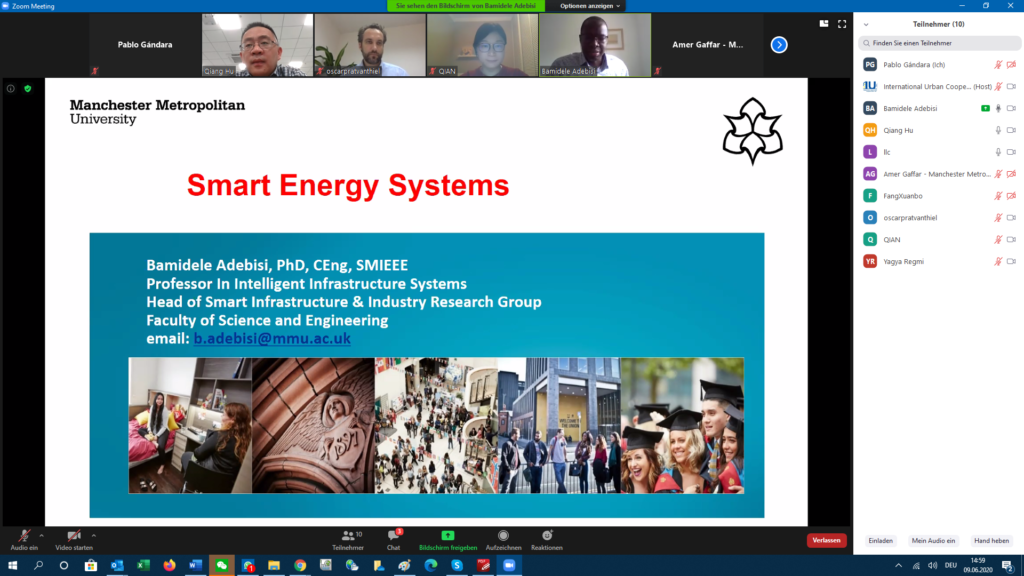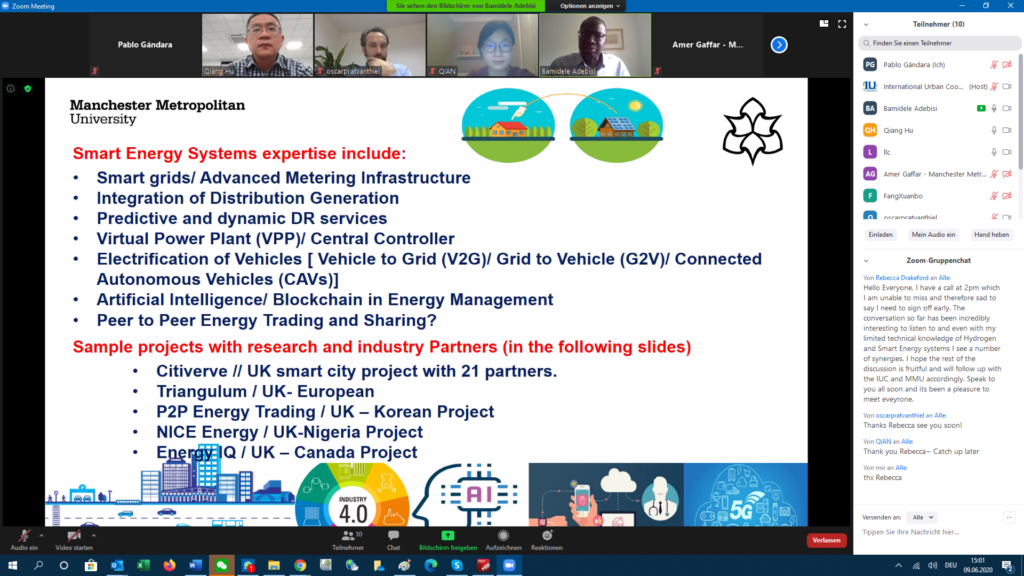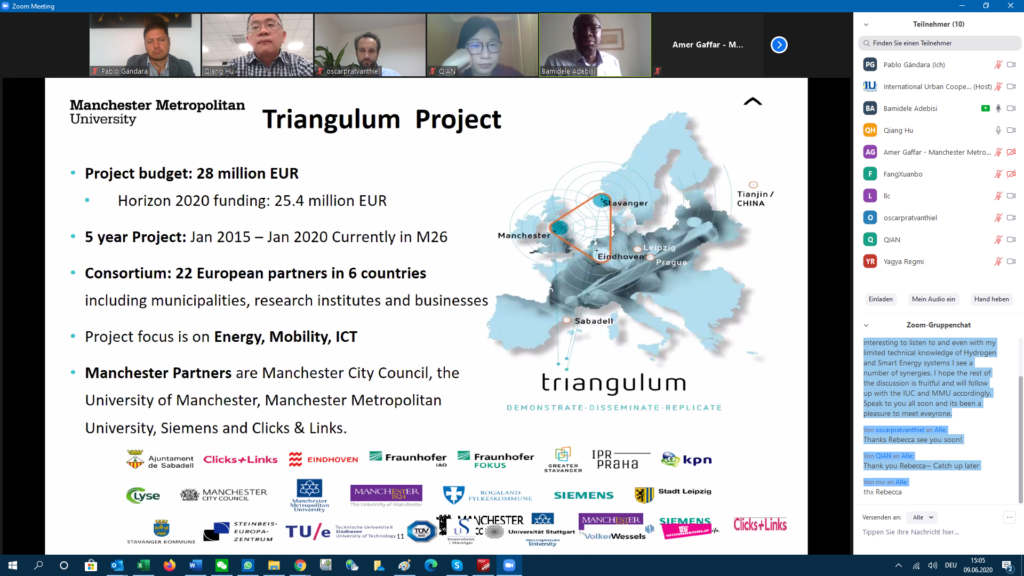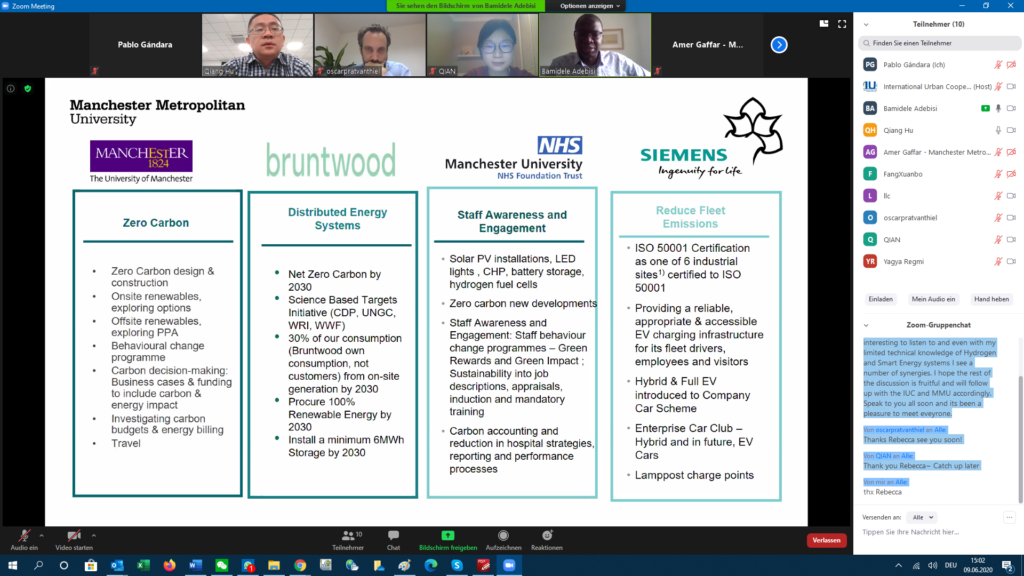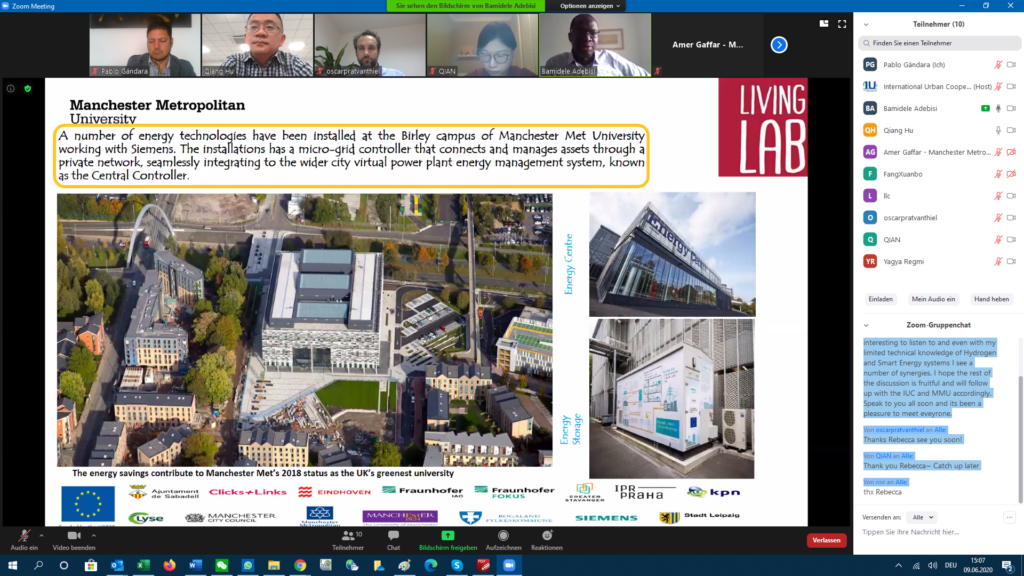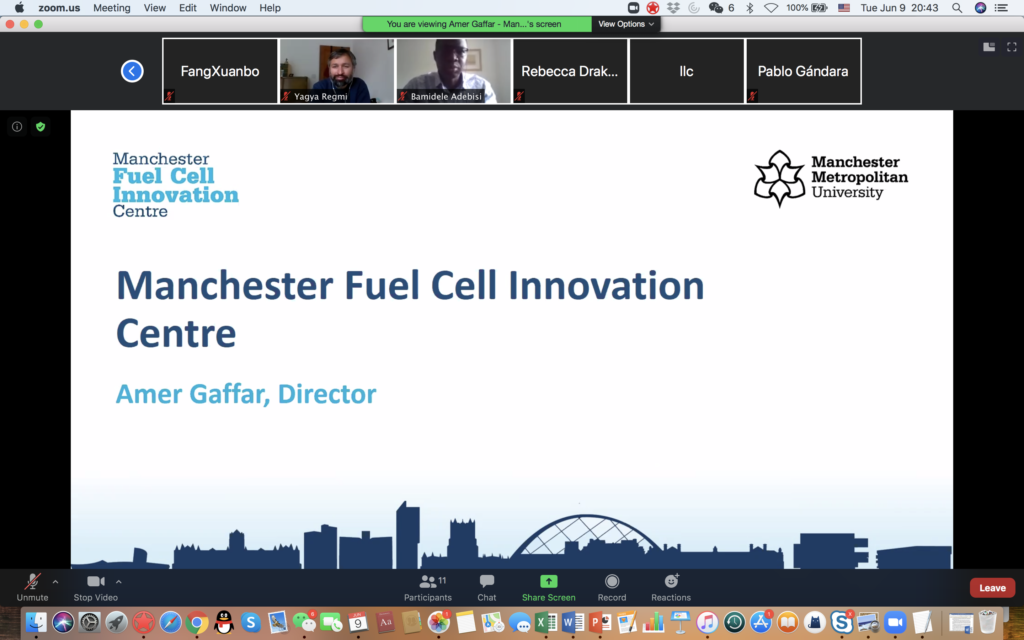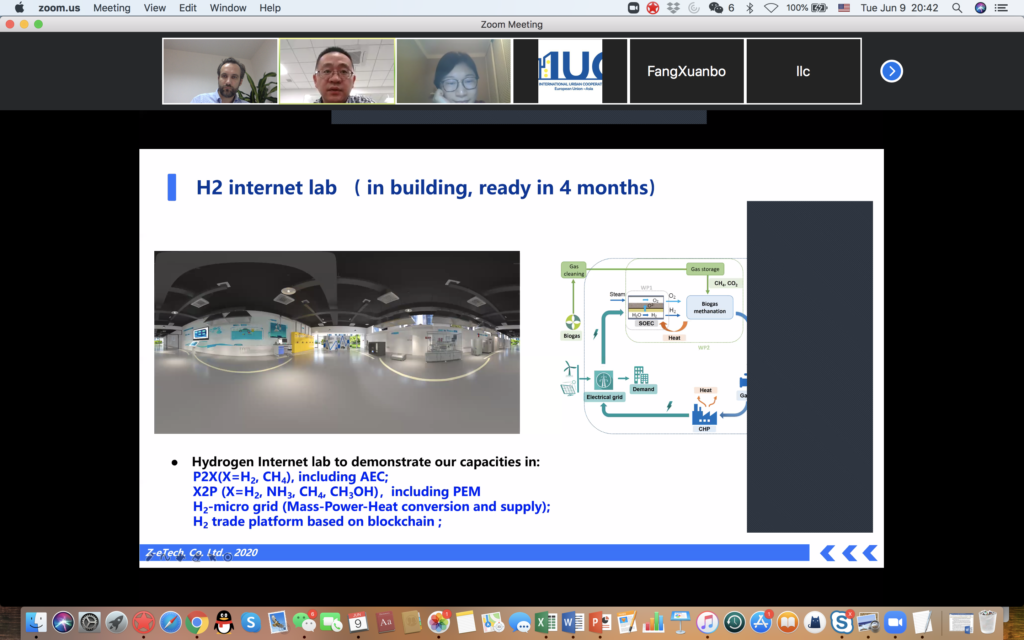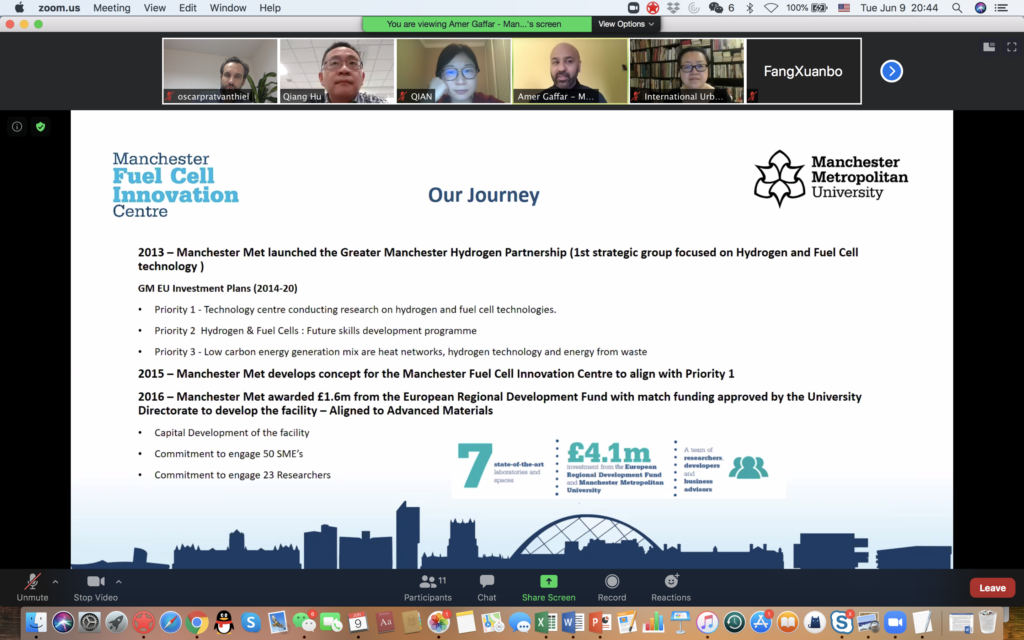The IUC Asia project hosted today the first online meeting between Manchester Metropolitan University (MMU) and Tsinghua University Chengdu EIRI Institute on the topic of smart grids, energy sector technologies and hydrogen. The event was facilitated by Rebecca Drakeford from MIDAS – Manchester Investment and Development Agency Service.
Tsinghua University presented its achievements in the field of groundbreaking research and applications in power generation, smart building energy services, and full life circle management of batteries. In addition to this Chengdu indicated its success in running acceleration programmes such as Energy Internet Innovation & Entrepreneur Plan for energy-related startups, citing, for example, a wireless charging startup which in few years has 70% of the market share.
This was followed with presentations on power to hydrogen gas and in hydrogen-related capabilities research. Prof. Qiang Hu or EIRI underlined the focus on developing low carbon technologies, as well as cell, stack and hydrogen internet capacities
Manchester Fuel Cell Innovation Centre (MFCIC), supported with 4.1 Mio GBP from European Regional Development Fund (ERDF) and Manchester City Council, introduced its research priorities, the future skills development programme, and low carbon energy generation mix investigations. The centre engages with over 50 SME’s and over 23 researchers and is therefore very close to practical research applications, while it promotes education at high school age of 13-18 years specifically on hydrogen fuel cells, not just chemistry. The Fuel Cell Innovation Center has been involved in multiple triple-helix projects on smart cities and energy grids including the EU funded Triangulum-i (H2020) and CityVerbe projects.
Both institutes EIRI and MFCIC have helped define regional strategies for sustainable mobility in Chengdu and Greater Manchester respectively. They agreed to list gaps in hydrogen capabilities in order to see cooperation potential. MMU is particularly interested in the integration of renewables to the network, how to harness flexibility from the distribution network, as well as exploring new ways of using blockchain and artificial intelligence. Experts also discussed cooperation on smart energy systems, including the generation and storage of hydrogen fuel. Chengdu EIRI offered MFCIC at MMU access to its online open software to support in this sense while stating great interest in, the living library of MMU. Further areas of collaboration include:
- Smart energy: integration of renewables to the network – how can to ensure grid stability
- Peer-to-peer energy trading
- How do we use more green energy? Which is the role of blockchain technologies and artificial intelligence to facilitate this?
Both sides will develop few ideas on bilateral cooperation including academic visiting activities, joint research and incubation/acceleration of start-ups in the hydrogen vehicles area. The IUC team will help both sides to define a clear cooperation action plan with milestones and short-term activities.
Agenda & Participants List
MMU-Chengdui_09 June_Introductory Meeting_Agenda(1)
Impressions



